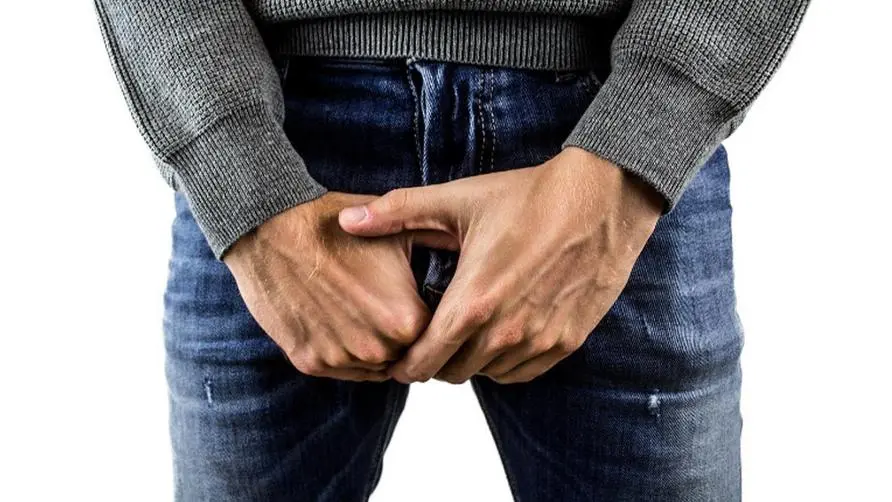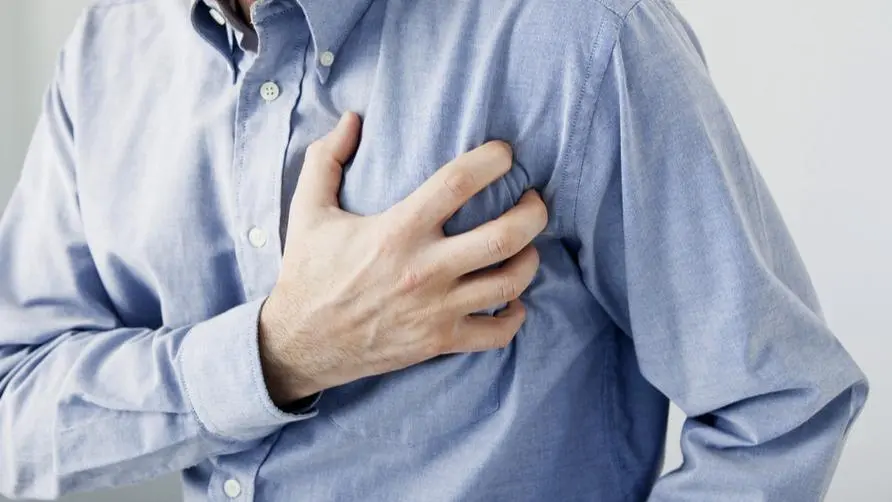She felt dizzy and had chest tightness, thinking she had a cold. When she checked her blood pressure, it "broke through 200"! Doctors reveal: Large temperature difference between morning and evening is more dangerous

She felt dizzy and had chest tightness, thinking she had a cold, and then she fainted and sought medical attention. Something happened: her blood pressure “soared over 200.”
Recently, spring and summer are changing, and the huge changes in morning and evening temperatures may be a risk factor for high blood pressure. Dr. Chen Jieyu, the attending physician at the Cardiovascular Center of Cathay General Hospital, said that an 80-year-old female patient was recently admitted to the hospital and suffered symptoms such as dizziness, chest tightness, stiffness and soreness in the shoulders and neck, and easy fatigue due to drastic changes in temperature. She is usually in good health and mistakenly thought it was a cold. Unexpectedly, her symptoms did not improve after going to the doctor and taking medicine.
Dr. Chen Jieyu pointed out that after a few days, the patient’s symptoms not only did not relieve, he even fainted at home. His family was shocked and rushed to the hospital after they realized that something was wrong. The examination found that the patient’s blood pressure soared above 200/120 mmHg, which also caused stroke and myocardial infarction. . When this female patient usually measured her blood pressure at home, her blood pressure values were higher than 150/90 mmHg many times. Due to misbelief in Internet rumors, her family members believed that the blood pressure requirements of the elderly “should not be too strict”, so they did not take it seriously and even thought they had high blood pressure. It is a normal aging phenomenon.
One in every four people in Taiwan has hypertension. Doctor: The occurrence of these “comorbidities” is even more worrying
Dr. Chen Jieyu explained that many people hear the word “hypertension” and think it is just a medical term that has nothing to do with them. In fact, if you are not careful, high blood pressure often acts as an “invisible killer” and makes patients invisible. Suffered from it. For example, the late President Roosevelt of the United States died of cerebral hemorrhage due to high blood pressure in 1945; many entertainers and politicians in Taiwan were also reported to have suffered from complications of high blood pressure.
In recent years, due to the gradual Westernization of Taiwanese diet, coupled with the preference of young people for foods that are heavy in oil, heavy salt, heavy flavor, and high-calorie sweets, hypertension has gradually become younger. According to statistics from the Taiwan Ministry of Health and Welfare in 2022, heart disease, cerebrovascular disease and hypertensive disease account for the 2nd, 5th and 7th places respectively among the top ten causes of death, with a total of more than 4.4% a year. Ten thousand people died, with a total annual growth rate of 20.8%; hypertension is a comorbid risk factor for chronic diseases such as cardiovascular and cerebrovascular diseases, diabetes, dyslipidemia, and kidney disease.
Dr. Chen Jieyu said that blood pressure refers to the pressure generated in the arterial wall when blood is output from the heart. It can also be affected by factors such as age, exercise, weight, smoking or emotion. When blood vessel walls harden, narrow, or become tight, blood pressure also increases. When blood pressure initially rises, most people will not have obvious symptoms, so the symptoms are often easily ignored.
According to Taiwan statistics, on average 1 in 4 adults suffers from hypertension, and the incidence rate among those under 45 years old is about 7%. Dr. Chen Jieyu warned that if you suffer from high blood pressure for a long time, the chance of suffering from stroke will increase by 40%, cardiovascular disease will increase by 25%, and the chance of kidney failure will increase by 10%.
Strictly controlling blood pressure below “this value” is expected to reduce the risk of cardiovascular disease and stroke
According to a study published in the New England Journal of Medicine (NEJM) in 2021, if blood pressure is strictly controlled between 110-130 mmHg, compared with those controlled between 130-150mmHg, the risk of cardiovascular events can be reduced by nearly 30%; this result This coincides with the results of a study published in the United States in 2015: controlling blood pressure to less than 120 mmHg can reduce the risk of cardiovascular events and all-cause death by 25% and 27%, respectively, compared to those with blood pressure less than 140 mmHg.
Dr. Chen Jieyu further pointed out that according to the latest research on white-coat hypertension (high pressure in the clinic and low pressure at home), those who are not treated have a 36% increased risk of heart disease, a 33% increased risk of death from any factor, and a 33% increased risk of heart disease. Vascular disease increased the risk of death by 109%. As for masked hypertension (low blood pressure in the clinic, high blood pressure at home), it will increase the risk of cardiovascular death by 1.88 times, the risk of stroke by 2.17 times, and the risk of death by any cause by 1.83 times.
A 2023 study on adults with an average age of 44.8 years old and no cardiovascular disease pointed out that those with systolic blood pressure between 130-139mmHg had an increased risk of subsequent cardiovascular events (cardiovascular complications and death) compared with those with systolic blood pressure less than 120 mmHg. 65%, and those with systolic blood pressure greater than 140 mmHg had an increased risk of 82% compared with less than 120 mmHg. The analysis found that among people with systolic blood pressure between 130-139 mmHg, those with higher initial cardiovascular risk had a 3.85 times higher risk of subsequent cardiovascular events than those with lower risk, and the risk of cardiovascular complications and all-cause death was 3.85 times higher than those with lower risk. Increased by 3.43 times.
Make good use of the 722 rule to stay away from the threat of high blood pressure. Doctors remind: Only by taking a daily dose can you eliminate the risk.
“130/80” is the current high blood pressure value recognized by most international standards. The United States revised the high blood pressure guidelines in 2017 and officially lowered the diagnostic value of high blood pressure to 130/80 mmHg. Clinically, it is expected to obtain the risk of cardiovascular death and complications. After many literature analyzes and expert discussions, Taiwan also adopted this value as the criterion for diagnosis of hypertension, and emphasized the importance of home blood pressure measurement.
Dr. Chen Jieyu reminds that the “7-2-2” rule is used to measure blood pressure at home. “7” means measurement for 7 consecutive days; “2” means after getting up in the morning. Measure each time once before going to bed at night; measure the last “2” twice each time. Clearly understanding the changes in blood pressure through “regular measurement” is an important key to good blood pressure management.
Dr. Chen Jieyu reminded that if you do not develop the habit of measuring blood pressure on daily basis, you will often not be able to detect the existence of high blood pressure at the first time. Over time, obvious symptoms and complications will begin to occur, and even lead to an irreversible outcome. Therefore, maintaining stable blood pressure standards and staying away from high blood pressure is an important issue in today’s physical health and wellness.
Further reading:





